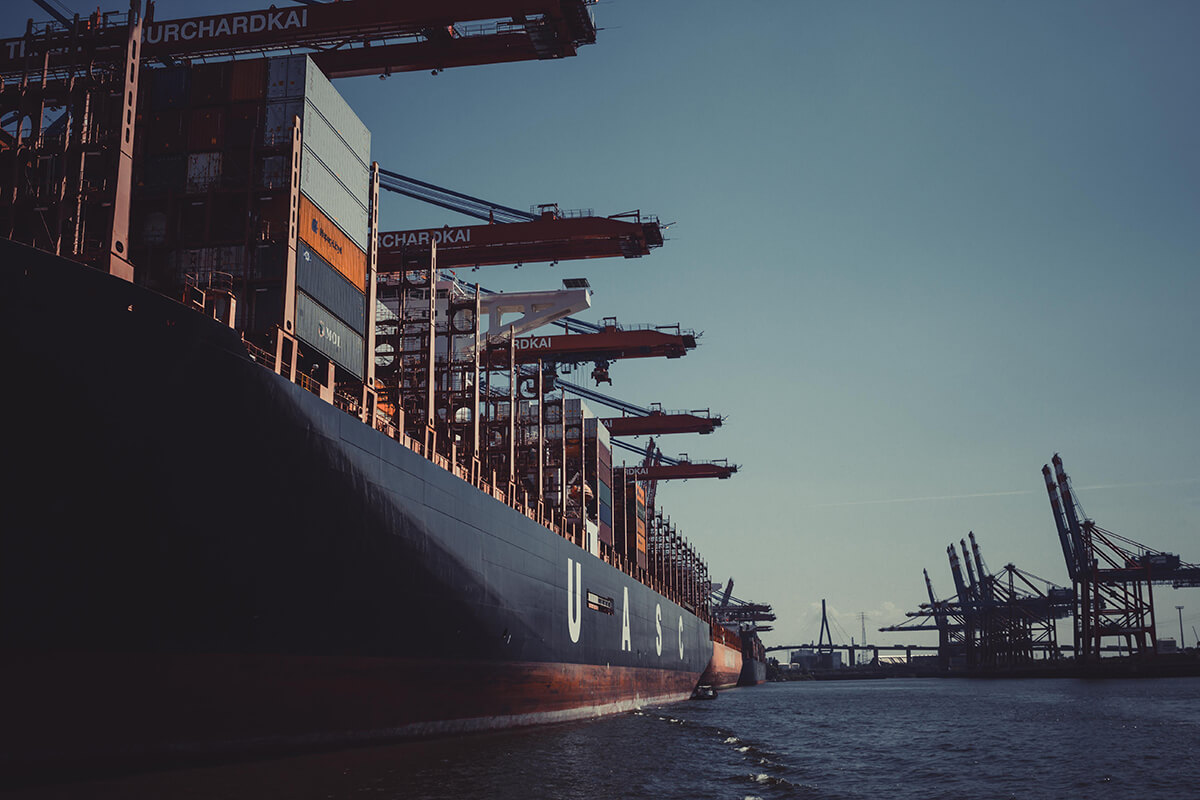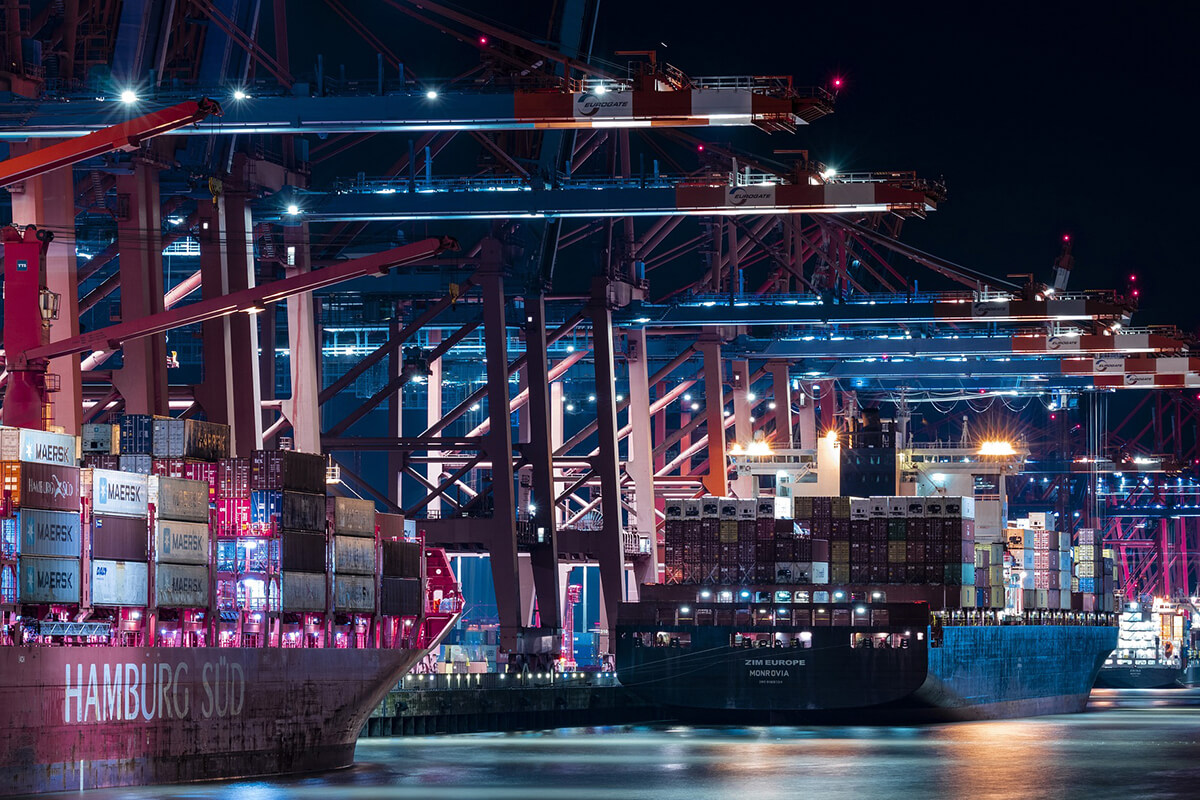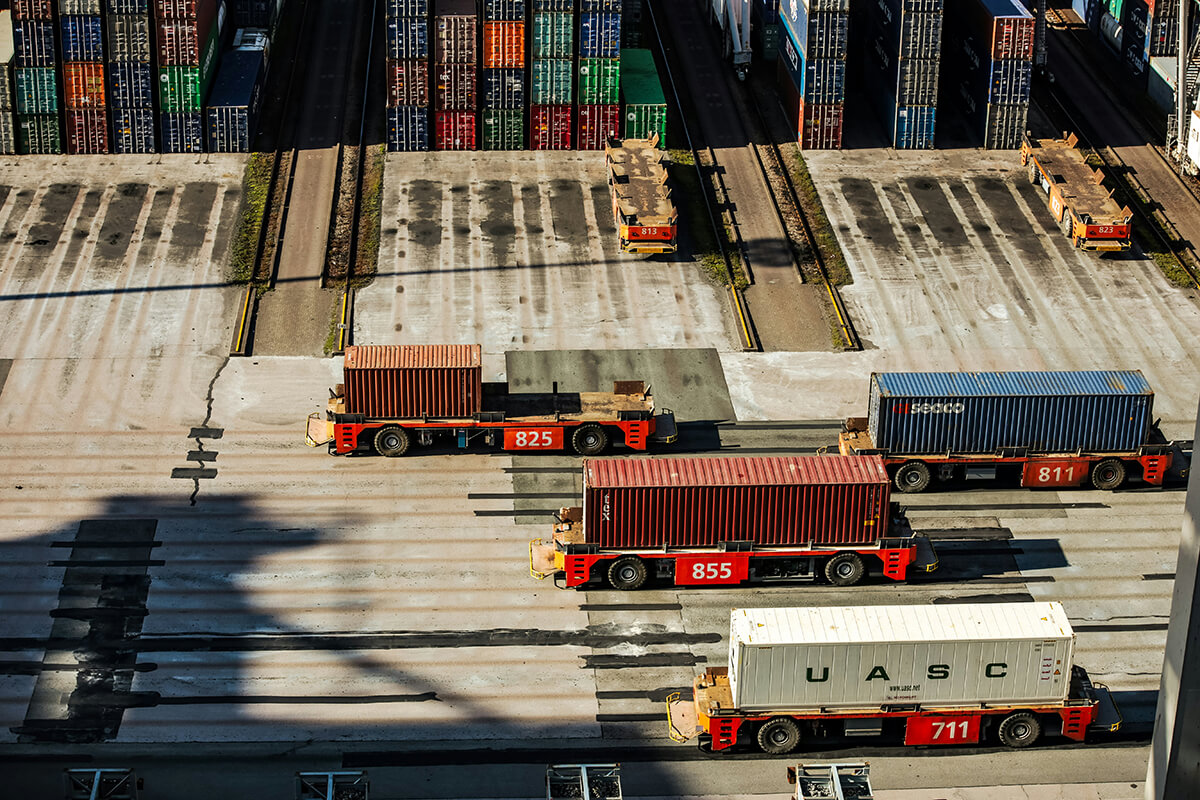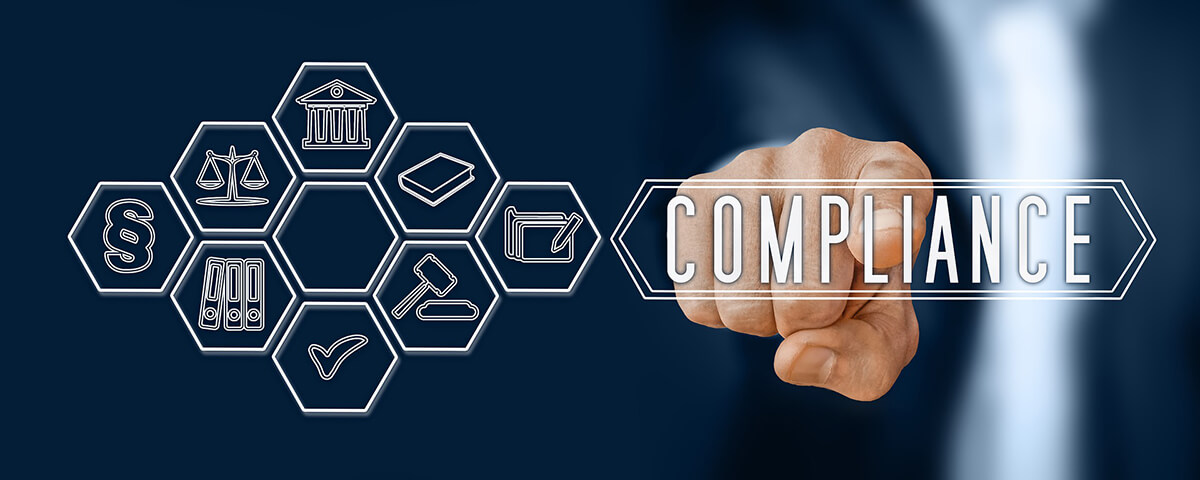If you’re into a business where the buying and selling of physical goods are involved, you must have heard of shipping incoterms. This is especially true for the import and export business. There are the agreed terms and conditions between the buyer and supplier. FOB is one of those incoterms.
But, what does FOB stand for? What does it imply to a shipping agreement? Is this incoterm meant for you? The answer depends on your personal choice, experience, and comfort. You may either want to keep the shipping costs to a minimum or get your package without any hassle.
In this article, we will explore the ins and outs of FOB. We will discuss this incoterm in a way that will help you decide if you should go for this contract.
Let’s begin.
What does FOB stand for?

FOB stands for “Free On Board.” It is a shipping terminology that defines the roles and responsibilities of a seller and buyer who are in an international contract. It clearly mentions the action items under the seller and buyer’s scope. This helps avoid any confusion between the obligations of the parties involved.
Shipping agreements were the result of contracts to define the roles and responsibilities of importers and exporters. This was the result of eliminating confusion between the responsibilities of both parties. But instead of going for a separate contract every time, internationally recognized agreements were defined. These shipping contracts got the name of Incoterms.
There are 11 incoterms. FOB is one of those incoterms. It is used by many shippers and importers. It has some legal bindings and both parties are expected to comply with the agreed terms and conditions.
The Key Components of FOB
Let’s explore the key elements of FOB to understand what exactly the FOB contract means. There are two main components of the FOB contract:
Delivery Location
As with every contract, FOB defines the delivery point for the seller. This delivery point is the last responsibility of the seller. The seller is required to deliver the items at this defined location.
At this point, the responsibility of the seller ends. The buyer has to take charge of the items from this location. For example, “FOB Shenzhen” would mean that the seller is only responsible for delivering the product to a location in Shenzhen, China.

Transfer of Risks and Responsibilities
As we discussed earlier, the seller and buyer agree to take ownership of the risks and responsibilities involved in the shipping process. In a FOB Incoterm, the sellers and buyers agree at the points or moments where the whole risk and responsibility of the shipment shifts from the seller to the buyer.
For example, both parties may agree to transfer the risk responsibilities at the Shenzhen port after the goods have been loaded onto the vessel.
These terms and conditions are mentioned in a FOB agreement. Both parties may also write the transfer of title in the shipping contract.
What Does FOB Mean for Sellers?
Every businessman needs to have a clear idea of the costs and responsibilities of the overall shipping process. Let’s have an overview of the costs and the responsibilities that a buyer and seller agree in a FOB contract:
- Delivery of Goods: The seller is required to deliver the goods or material to a specific location. This point or location may be a shipping port. The delivery point is mentioned in the sales contract.
- Export Clearance: The seller is obligated to clear the export duties and other formalities. The seller will provide all the documents required at the export facility.
- Loading of the Goods: The support is responsible for loading the goods onto the preferred mode of transportation. In the case of shipping via sea, the seller makes the arrangements for boarding the goods onto the vessel.
- Transportation to the Port of Origin: The seller is also required to transport the goods to the required Port. The port of origin has been already decided between the seller and buyer. This is the last point in a FOB contract where the responsibility of the seller ends. From this point, the buyer is responsible for everything else.
- Costs until the Delivery Location: In a FOB agreement, the seller is responsible for bearing the costs associated with the transportation of goods from the seller’s warehouse to the Port of origin. The seller is also responsible for paying the export charges.
What Does FOB Mean for Buyers?
Let’s find out what responsibilities and costs a buyer has to bear in a FOB shipping agreement.
- Payment for the Items: As with every contract, the buyer needs to pay for the goods he bought from the supplier. This payment is mentioned in the sales contract.
- Import Duties and Formalities: When the goods reach the port of destination, the buyers need to do everything to get their items cleared. They have to provide all the documents to the customs. They may take the documents from the seller, but the responsibility of getting the goods cleared at the import customs rests with the buyer in a FOB contract.
- Transportation from the Port: When the goods reach the port of destination, it is the buyer’s responsibility to arrange for the transportation. The buyer may have to arrange for local transportation to pick up goods from the port and deliver them to the desired location.
- Insurance: If the buyers desire to get their goods insured, they will have to do it on their own. The seller will not be responsible for the insurance in FOB contracts. The buyer will have to arrange and follow the process for insurance.

- Costs from Vessel until the Final Destination: The responsibilities of the sellers ended after the loading of goods onto the shipping vessel. The costs of everything from the vessel to the final destination are on the buyers in FOB contracts. These costs may include insurance, import duties, unloading, and inland transportation.
In short, the risks, responsibilities, and costs shift from the seller to the buyer just after the goods are loaded onto the vessel.
Step-by-Step Process of a FOB Agreement
Let’s discuss an example of a FOB shipment process to help you understand better about this shipping Incoterm. Let’s take an example of importing products from China to the US.
The following steps will inform you about the usual tasks performed by a seller and a buyer in this agreement.
Step 1. ABC company in the US wants to import electronic items from the YIWU market in China. This company hires the XYZ company in China and asks to board the shipping containers onto a shipping vessel at Shanghai Port. Both parties mutually call the agreement as “FOB Shanghai.”
Step 2. The XYZ company arranges the electronic items. It uses standard packaging to ensure the items are safe to transport it to the Shanghai port from the YIWU market.
Step 3. The XYZ company makes all the arrangements to clear this shipment from export customs.
Step 4. After clearing the shipment from export formalities, the XYZ company loads the shipment to a vessel at Shanghai port.
Note: This is the last step from the XYZ company. The responsibilities of this Chinese supplier will end here.
Step 5. The ABC company will take charge of this shipment process from the moment the goods are loaded onto the vessel.
Step 6. The ABC company will clear the shipment form import customs at the port in the US.
Step 7. The ABC company will transport the containers from the port to the final destination. The place of final destination can be selected by the ABC company.

How to Decide if You Should Go for FOB?
FOB is often suitable for certain types of buyers. You need to check your capabilities and experience before you can decide on a FOB contract. Here are some of the cases that could help you decide if FOB is meant for you:
- Import Experience: If you have enough experience in international trade with a good understanding of logistics processes, you may choose FOB. You need to be familiar with managing customs clearance, transportation, and other aspects of the import process.
- Efficient Logistics Operations: FOB may be suitable for you if you have well-established logistics and distribution networks in your local country. That’s because you have to handle the transportation of goods from the port of arrival to your final destination.
- Cost-Sensitivity: If you want more control over transportation costs, you may prefer FOB. With FOB, you can negotiate and choose your own transportation methods. This will help you optimize costs based on their network and requirements.
- Risk-Tolerance: If you are comfortable with assuming risk and responsibility for the goods once they are loaded onto the vessel, you may opt for FOB.
- Local Customs Expertise: If you have customs expertise in your country, or you have close connections with customs brokers, you can choose FOB.
Tips for a Successful FOB Transaction
You may have enough experience with international import and export business. However, it is still beneficial to go through the tips to ensure your import process is safe and error-free.
The following section will give you beneficial tips for ensuring a successful FOB transaction. These tips are equally beneficial for new and old importers who want to use FOB:
Here are some tips to ensure the success of FOB transactions:
- Clear Communication: Clearly define and communicate the terms of the FOB transaction in the sales contract. Ensure that both parties have a shared understanding of responsibilities, delivery points, and key timelines.
- Thorough Documentation: Provide and request comprehensive documentation. Ensure that all required documents, such as the Bill of Lading, commercial invoice, packing list, and certificates, are accurately prepared. Also, ensure that these documents are exchanged according to the terms of the FOB agreement.
- Risk Assessment: You need to conduct a detailed risk assessment. Understand the risks associated with the chosen FOB terms and implement risk mitigation strategies. This includes evaluating potential delays, damages, or other issues during the shipping process.
- Insurance Coverage: Consider obtaining insurance coverage. FOB typically places the responsibility for insurance on the buyer. Both parties should discuss and agree on insurance coverage to protect against unforeseen events during transportation.
- Timely Shipment: Ensure timely shipment of goods. Adhere to agreed-upon timelines for the delivery of goods to the specified point. Delays can impact the overall success of the transaction.
- Quality Control: You need to ensure that goods meet specified quality standards before shipment. Quality issues can lead to disputes and financial losses.
- Get Regular Updates: You need to maintain regular communication with your Seller. Keep getting updates on the status of the shipment. Promptly communicate any changes or issues that may arise during the shipping process.
- Payment Terms: Clearly define payment terms: Ensure that both parties understand and agree upon the payment terms specified in the sales contract. This includes the method of payment, currency, and any deadlines.
- Incoterm Compliance: Confirm compliance with Incoterms rules. Ensure that the chosen Incoterm (FOB) is appropriate for the specific transaction and that both parties understand its implications on responsibilities, risks, and costs.

Pros and Cons of FOB for Buyers
Before you decide to go for an FOB agreement, let’s briefly discuss the benefits and potential disadvantages of an FOB shipping agreement.
Pros:
Buyers can have the following benefits of having a FOB agreement:
- Cost Savings: As you have read, the FOB contract places half of the risks, costs, and responsibilities on both parties. As a buyer, you can work on reducing the overall costs of the shipping process. For example, you can save costs in terms of insurance and inland transportation.
- More Control Over Lead Time: The buyer is responsible for transporting the goods after they reach the port of destination. You have more control over the lead time of the goods. You can reduce the delivery time by expediting the customs process for import. You can also reduce the leaf time by choosing the faster transportation channels in your country.
- Reduced Risks During Transit: You have the chance to reduce the risks of getting your goods damaged during transit. Although you don’t have much control over goods until they reach the port of your country, you can take extra measures to protect them after they arrive at the port.
- Flexibility in Changing Final Destination: As you are responsible for the delivery of your goods at the final location, you have the liberty to change the destination. For example, you can transport the whole shipment to another city if your business dynamics have changed.
Cons:
FOB agreements may have some disadvantages for buyers, depending on the level of comfort a buyer wants in a shipping agreement. Let’s discuss a few potential drawbacks of FOB below:
- Increase Risks and Responsibilities: Buyers have more risks and responsibilities in a FOB agreement. In contrast to a few other incoterms, the FOB agreement requires buyers to get actively involved in almost half of the shipping process. Buyers will be responsible for receiving the goods at the destination port and doing the rest of the tasks after that point.
- Less Control over Sea Freight: Sea freight is the major activity in any import and export business. Buyers have no control over the sea freight in FOB agreements. You can only wait until the goods arrive at your port. All you can do is get the tracking information from your supplier to have visibility on the ETA.
How Is FOB Different than Other Incoterms?
Each Incoterm is internationally defined keeping in view the requirements and nature of a contract. Let’s see how FOB compares with other common Incoterms.
FOB vs CIF
CIF stands for Costs, Insurance, and Freight. CIF is quite similar to FOB. The only difference is that the costs of insurance are to be paid by the seller in CIF. On the other hand, the insurance costs fall under the buyer’s responsibility in FOB. All the rest of the costs, risks, and responsibilities remain the same in FOB and CIF. Due to their close similarity, both FOB and CIF are commonly used for LCL delivery.
FOB Vs CIP
CIP stands for Carriage and Insurance Paid to. The CIP Incoterms goes a step ahead of FOB in terms of relaxing a buyer’s responsibilities and risks. In the CIP Incoterms, the seller is responsible for delivering the goods at the named location nominated by the buyer. This location can be beyond the port. So, the buyer doesn’t have to arrange the local transportation, and the seller will also pay for the insurance in a CIP contract.
FOB Vs DDP
DDP stands for Delivery Duty Paid. In a DDP contract, almost all the responsibility, risk, and cost are under the seller’s scope. The buyer is not responsible for any shipping step. The seller will deliver the goods starting from the origin to the buyer’s final destination. The DDP incoterm places the maximum responsibility on the buyer. It suits the buyers with little to no experience of import processes.
FOB Vs EXW (Ex Works)
Ex Works is quite different from FOB. In Ex Works Incoterms, the seller is only required to make the goods available at a certain place. This place could be the factory or the warehouse of the seller. The buyer is responsible for picking up the goods from the seller’s facility and for the rest of the shipping process. Ex Works puts the maximum risk and responsibility on the buyer as compared to FOB, where the buyer has to bear around half of the total risks and responsibilities.
How can a sourcing agent help with your FOB orders?

A sourcing agent is a professional company that specializes in arranging goods for a buyer in a specific country. A sourcing agent is an expert in buying the goods at the best price from the best available supplier. Here are some of how a sourcing agent can help you with your FOB orders:
- Supplier Research: Good sourcing agents will already have a database for suppliers. They can help you identify the right supplier to fulfill your requirements. You can ask the agent to arrange a supplier who has good experience with FOB contracts.
- Negotiating Terms: Sourcing agents have great expertise in negotiating prices, and other terms and conditions. They can negotiate the FOB terms on your behalf to secure a perfect contract.
- Quality Goods: A buyer is always worried about the quality of the goods to be imported. A sourcing agent can ensure that all the specifications are met before the FOB shipment.
- Logistics support: A sourcing agent can help arrange the local transportation in the country of origin. Although the local transportation is in the seller’s scope in FOB, an agent can double-check if you’re being overcharged.
- Assistance in FOB Documents: FOB shipping contracts involve a lot of documents. Sourcing agents know how to arrange them properly. They can arrange documents, including the bill of lading, certificate of origin, and certificate of conformance.
- Insurance: As insurance is under the buyer’s responsibility in FOB contracts, a sourcing agent can assist you in getting the best insurance for your goods at affordable prices.
- Better Communication: You may feel a gap in communicating your requirements to your seller. Sourcing agents are experts in the local language and also know international languages like English. A good agent can share updates about the seller’s obligations in FOB terms.
- Delay and Risk Mitigation: A sourcing agent can help buyers mitigate the risks and reduce or avoid any potential delays during the FOB process.
- Local Insights: Sourcing agents can act like your eyes and ears in the source country. They can provide you with every bit of information you require for the safe and timely execution of your FOB orders.
A sourcing agent can help international importers in many other ways as well. But, you must know how to find a reliable sourcing agent. In the case of sourcing products from China, you should know how to work with a China sourcing agent. The same goes for the other source country as well.
Final Words
Shipping Incoterms are a necessary part of international trade. Whenever you want to import something from another country, you would have to select an Incoterm. Even if you’re not into international trade, Incoterms are still important, as they’re used in the local trade too.
In this article, we have tried to go deep down into what FOB means in the shipping industry. To put it in simple and short words, the FOB contract puts the risks, costs, and responsibilities of a shipment on the seller until the shipment is boarded on the vessel at the port.
If you want professional help with your FOB requirements, you can always fill out our simple form. Our FOB sourcing expert will guide you through every step right from the supplier research until your goods are delivered safely to your desired destination.

